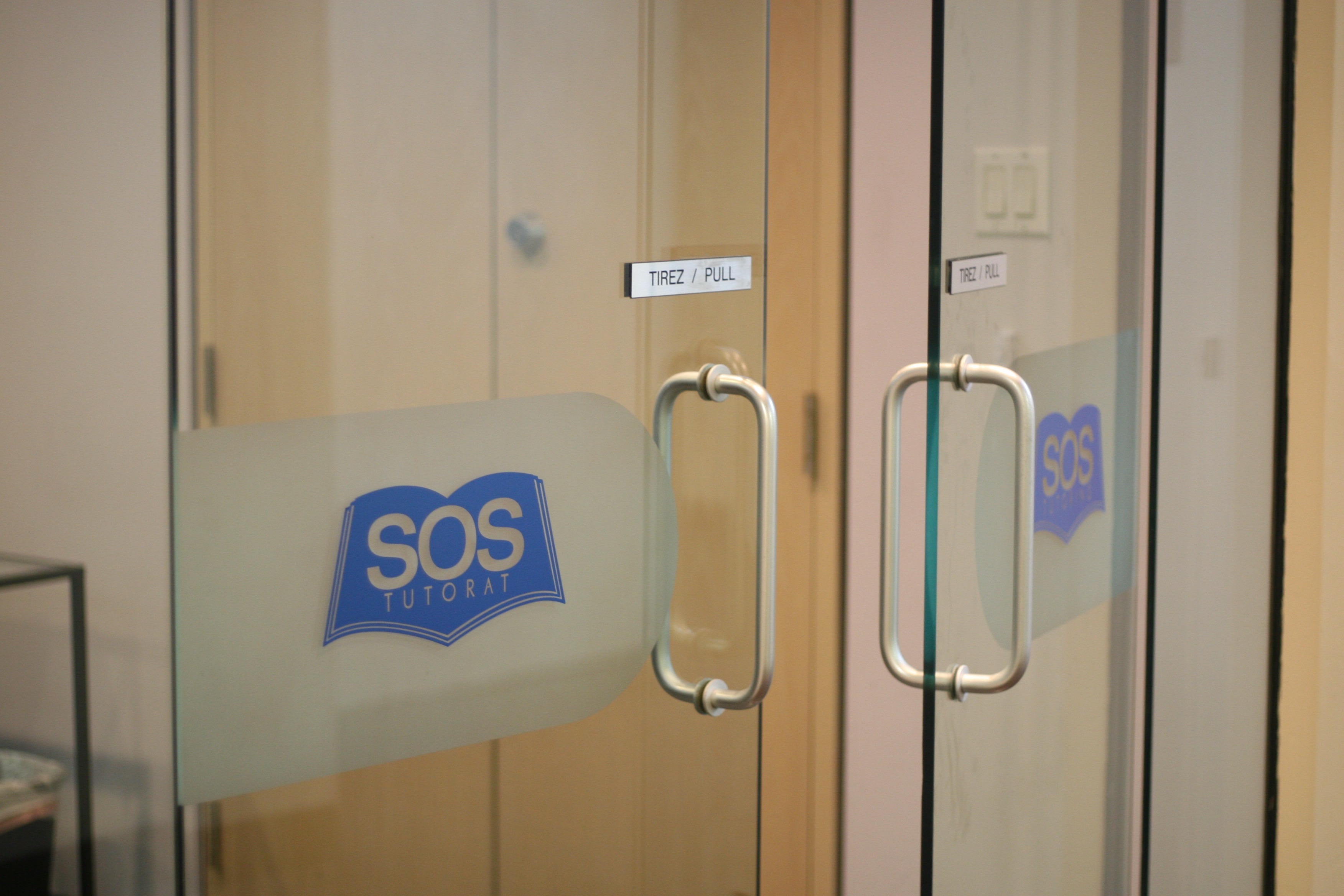What went wrong between CASA and its last private tutoring sponsor?
If you’re a student in the John Molson School of Business (JMSB), you won’t see ads for major tutoring companies at Frosh, or any JMSB-sponsored events. Any posters advertising private tutors in the MB building are quickly taken down.
This wasn’t always the case. For years, JMSB’s student association, the Commerce and Administration Students’ Association (CASA), had one private tutoring sponsor: SOS Tutoring. The Montreal-based company sponsored Frosh, posted ads on CASA’s website, and hung posters around the MB building.
For most of their relationship, “There were no issues with us and CASA,” said Aaron Benshabat, an executive at SOS. “We had a very healthy relationship.”
Then, in the summer of 2016, CASA’s then-VP External, Rudy Grow, said he discovered that another local student association was getting a better sponsorship deal from SOS. “They were basically getting a steal from us,” he said.
Although the exact details of the contracts are private, Benshabat said the $4,000-$6,000 sponsorship contracts SOS has with its partner schools are generally within a few hundred dollars of each other. However, Grow said his organization was getting paid less “per student” than the other, smaller student association. CASA’s existing contract with SOS was set to expire at the end of the year.
Benshabat said the friction between CASA and SOS was caused not by an unfair deal, but by pressure from the JMSB administration. “They got light pressure in the beginning,” he said. “And then, over time, it seemed every time I was talking to a new president, it was more of, not a comment that they received from academia, but more of a ‘Hey, you should start thinking about not working with [private tutors].’”
He said the school’s alleged pressuring of CASA to cut ties with SOS, which he blamed on institutional bias against private tutors, compromised the association’s independence from the administration.
Grow, who would become CASA’s president in the spring of 2017, said that the university did pressure CASA to end its relationship with SOS, although it was never stated what would happen if CASA refused. “They’re not gonna tell you ‘We’re gonna do this,’ but you can tell in the tone of their voice that something would likely happen.”
“The JMSB administration did articulate to CASA how it felt about sponsorship agreements with tutoring firms,” said university spokesperson Mary-Jo Barr. “However, CASA is an independent body and for this reason, the administration did not, and would not, direct them to end their relationships with any third parties.”
Grow said that following his discovery, he and Benshabat met several times between September and November 2016 to discuss their contract. By their last meeting in November, CASA had a new price tag: $50,000 a year. Grow said that when he presented this amount, he was “laughed out of the room.”
Finally, in February 2017, after failing to reach a deal with SOS, Grow introduced a motion at a regular council meeting to “Prevent all CASA subsidiaries from signing any form of sponsorship contract or agreement with any company or person external to the Concordia umbrella that offers tutoring services and/or crash courses for courses offered at Concordia University.”
The minutes show that the motion was overwhelmingly approved, with 11 votes for, one against and three abstentions.
Grow said the decision wasn’t just about being unhappy with their contract. “[We] were also opposed to people profiting off of student money,” he said.
“We wanted to encourage students to utilize the free services included in their tuition (weekly tutorials, extra tutoring…) rather than spend so much on external companies.” said Evan Pitchie, who was CASA’s president in the 2016-17 academic year.
In addition, JMSB now has an app that connects students with private tutors. Launched in the winter of 2018, CASA+ allows students to find tutors by subject, according to CASA’s website. Grow said that unlike a private tutoring company, the app isn’t designed to make a profit. “CASA’s not making money off of it; it’s really about making that service more accessible and affordable to students,” he said.
Pitchie said CASA provided its tutors with extra training to ensure the quality of tutoring was competitive with private companies.
Benshabat said it’s the students who lose out in this situation, since they might not know what private tutoring options exist for them. “It’s not that they would choose either/or, but [CASA] at least made them aware that if you need help and it’s extra than the standard, it’s there,” he said.
As for SOS, Benshabat said that although Concordia is the private tutor’s biggest partner, his company was able to adjust its business strategy to avoid any major financial losses.
JMSB students can download CASA’s tutoring app off of the App Store.




